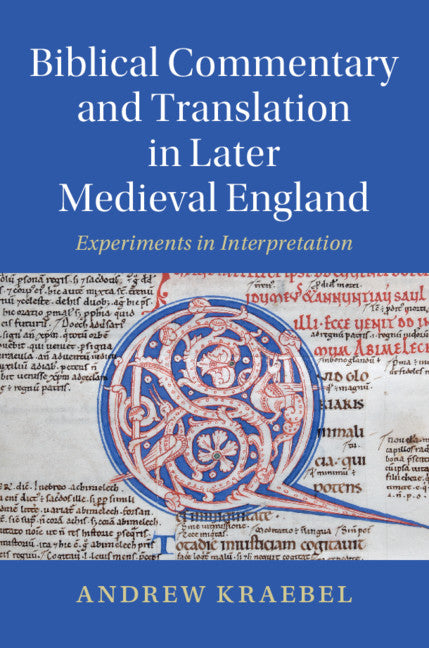Freshly Printed - allow 4 days lead
Couldn't load pickup availability
Biblical Commentary and Translation in Later Medieval England
Experiments in Interpretation
A new history of the origins of the English Bible, revealing the complex continuities between Latin commentaries and English translations.
Andrew Kraebel (Author)
9781108486644, Cambridge University Press
Hardback, published 5 March 2020
322 pages, 17 b/w illus.
23.5 x 15.8 x 2 cm, 0.65 kg
'This is a book that specialists will find worth revisiting.' Patrick Hornbeck, Renaissance Quarterly
Drawing extensively on unpublished manuscript sources, this study uncovers the culture of experimentation that surrounded biblical exegesis in fourteenth-century England. In an area ripe for revision, Andrew Kraebel challenges the accepted theory (inherited from Reformation writers) that medieval English Bible translations represent a proto-Protestant rejection of scholastic modes of interpretation. Instead, he argues that early translators were themselves part of a larger scholastic interpretive tradition, and that they tried to make that tradition available to a broader audience. Translation was thus one among many ways that English exegetes experimented with the possibilities of commentary. With a wide scope, the book focuses on works by writers from the heretic John Wyclif to the hermit Richard Rolle, alongside a host of lesser-known authors, including Henry Cossey and Nicholas Trevet, and many anonymous texts. The study provides new insight into the ingenuity of medieval interpreters willing to develop new literary-critical methods and embrace intellectual risks.
1. Interpretive theories and traditions
2. Eclectic hermeneutics: biblical commentary in Wyclif's Oxford
3. Richard Rolle's scholarly devotion
4. Moral experiments: Middle English Matthew commentaries.
Subject Areas: Medieval history [HBLC1], Literary studies: c 1500 to c 1800 [DSBD], Literary studies: classical, early & medieval [DSBB]


